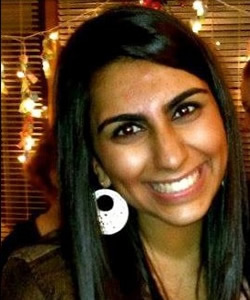Step One (everything is new and exciting) was in full speed, as my first week had been filled with museum trips, tall apartment buildings, and tons of pictures. Although I recognized the importance of the other steps, my invincible “It Won’t Happen To Me” judgment clouded analysis of them, and I immediately jumped to Step Nine (incorporation of abroad experience into life) as my personal trajectory of this so-called “culture shock” process.
It’s fair to say that Invincible Me didn’t last long, as I spent that weekend at home and couldn’t seem to shake the feeling of missing my friends and family. I Facebooked, Skyped, and FaceTimed more than was healthy at the time; the next week was worse. Classes were a mess, zero Spanish friends had been made, and the unappetizing cafeteria food cleaned me out of cash sooner than I expected.
Then came Thursday. The unwelcoming Spanish bank teller decided to make weekend plans while serving me, so she proceeded to call a friend midway through our conversation. Upon leaving, the graffiti-covered buildings could no longer receive the same touristy glance I gave them the first time, followed by Madrid’s unstoppable rain that week, reminding me to never forget my umbrella on a day it was forecast to chispar (drizzle). To top it off, school was no longer a seven minute walk, but rather a 45 minute walk/metro/bus journey. Step Two (differences become apparent, frustration ensues) had been enacted, and Step Three (feeling homesick and lonely) was only minutes away from deployment.
Before arriving, I had thankfully been in contact with a woman who belonged to the same religious community as myself in Madrid. Back in Atlanta, approximately 2,000 people that practiced the same Shi'a sect of Islam as me, called Ismailism, surrounded me. In DC, I found a smaller community of about 450 people, seven of whom also shared the Georgetown campus with me. Religion had subconsciously permeated my life, and I figured maybe that was the personal connection to Madrid I needed. That Friday night, I attended prayer services, wishing something would finally click.
Stepping inside, I felt like I was at home—literally and figuratively. Comprised of about twelve members, services were held at the home of the eldest members in the room, whose daughter was the woman I spoke with earlier. After services, I chatted with her two sons. Both had studied abroad in Bulgaria and spoke fluent English, for which I was extremely thankful.
Going home that night, I felt the safest I had in the past three weeks. It was then I realized the power of religion and community in my life. How did this group of people provide me a sense of security and belonging that I didn’t get from my peers in the Georgetown program? It was a strange occurrence, yet just what I needed to feel I could make Madrid my home. Later that night, I Skyped my mom, hoping she could provide some explanation. Although her logic didn’t make sense, negating her theories helped me form my own:
To me, Ismailism as a faith believes in Allah as an Eternal, Supreme Being that contains an abundant light (noor) within Him. Its followers, Ismailis, each have a part of that light within them, implying they hold a piece of Allah’s noor in their souls. Thus, meeting this fellow group of Ismailis connected me with Allah’s effervescent light once again. It gave me the security, stability, and compassion of Allah, reminding me that He is indeed everywhere and always watching over me. I saw the kindness of Allah in this family, and I can honestly say they helped me not only reconnect with my faith but also to Madrid.
It was at that moment that I felt like I could indeed conquer this city in the next five months. Step Four (adapt and appreciate host culture) had been finally set in motion, and I was ready to make this experience worthwhile for me, and not just for my Facebook friends.

